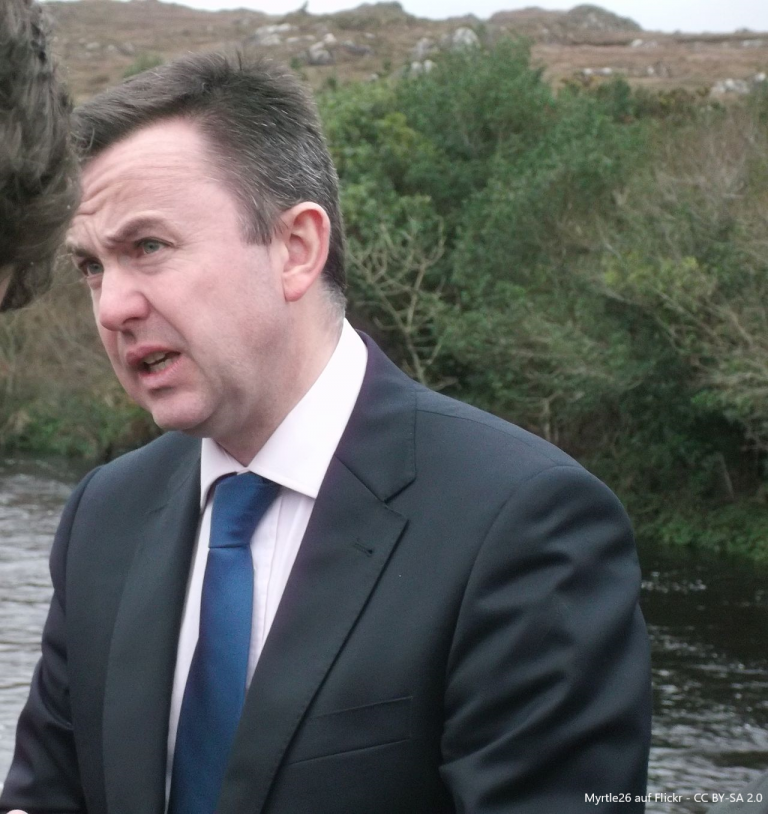Today, MEP Brian Hayes, Irish Christian-Democrat and influential Vice-President of the Economic and Monetary Affairs Committee (ECON) announced on Twitter that after the end of this Parliamentary term he will become CEO of the Banking and Payments Federation Ireland (BPFI): https://twitter.com/brianhayesMEP/status/1059750115173376000
MEP Sven Giegold, financial and economic policy spokesperson of the Greens/EFA group and the European Parliament’s rapporteur for transparency, accountability and integrity commented:
„The revolving door is turning too fast for Brian Hayes. MEPs need a cooling off period before switching from representing public interests to lobbying for the financial industry. Brian Hayes’ announcement is a positive and rare example of transparency nearly 8 months before his change from public office to lobbying. While Mr Hayes’ transparency is laudable, his private prospect leads to a conflict of interest with his present roles in EU legislation. EU citizens and the European Parliament’s Code of Conduct expect MEPs to act by the principles of disinterest, integrity, honesty and respect for Parliament’s reputation. To resolve such potential conflict of interest, Hayes should abstain from voting on matters of financial services and hand over his legislative roles to colleagues.
This case proves that Parliament’s rules need an update to avoid leaving MEPs in a limbo between high expectations but less clear practical advice. The Parliament’s Rules of Procedure should include a cooling off period after the end of MEP’s mandate. During the cooling off period, they should receive a transitional allowance.“
—-
BACKGROUND: Code of Conduct for Members on Conflicts of Interest:
Article 1 : Guiding principles
In exercising their duties, Members of the European Parliament:
(a) are guided by and observe the following general principles of conduct: disinterest, integrity, openness, diligence, honesty, accountability and respect for Parliament’s reputation,
(b) act solely in the public interest and refrain from obtaining or seeking to obtain any direct or indirect financial benefit or other reward.
Article 2 : Main duties of Members
In exercising their duties, Members of the European Parliament shall:
(a) not enter into any agreement to act or vote in the interest of any other legal or natural person that would compromise their voting freedom, as enshrined in Article 6 of the Act of 20 September 1976 concerning the election of the members of the European Parliament by direct universal suffrage and Article 2 of the Statute for Members of the European Parliament,
(b) not solicit, accept or receive any direct or indirect benefit or other reward, whether in cash or in kind, in exchange for specific behaviour in the scope of the Member’s parliamentary work, and shall consciously seek to avoid any situation which might imply bribery, corruption, or undue influence,
(c) not engage in paid professional lobbying directly linked to the Union decision-making process.
Article 3 : Conflicts of interest
- A conflict of interest exists where a Member of the European Parliament has a personal interest that could improperly influence the performance of his or her duties as a Member. A conflict of interest does not exist where a Member benefits only as a member of the general public or of a broad class of persons.
- Any Member who finds that he or she has a conflict of interest shall immediately take the necessary steps to address it, in accordance with the principles and provisions of this Code of Conduct. If the Member is unable to resolve the conflict of interest, he or she shall report this to the President in writing. In cases of ambiguity, the Member may seek advice in confidence from the Advisory Committee on the Conduct of Members, established under Article 7.
- Without prejudice to paragraph 2, Members shall disclose, before speaking or voting in plenary or in one of Parliament’s bodies, or if proposed as a rapporteur, any actual or potential conflict of interest in relation to the matter under consideration, where such conflict is not evident from the information declared pursuant to Article 4. Such disclosure shall be made in writing or orally to the chair during the parliamentary proceedings in question.

